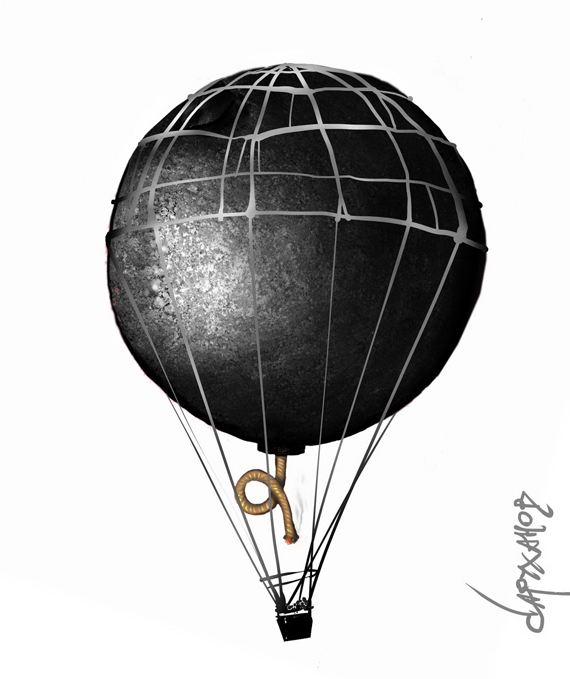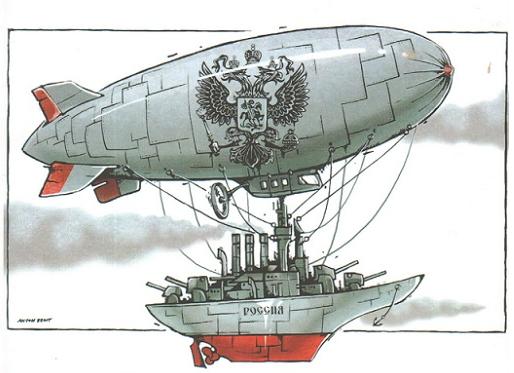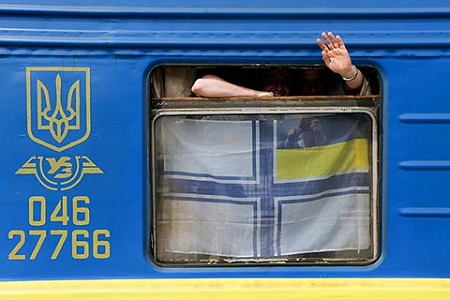At the end of Soviet times, some commentators suggested that the USSR was becoming like “Upper Volta with Missiles.” Now, a Russian commentator suggests that the situation is becoming even worse: Russia is retreating into the values of the past while retaining its nuclear weapons and thus becoming even more dangerous than it appears.
Indeed, Aleksandr Rubtsov writes in “Novaya gazeta,” Russia is growing within itself “something like the Islamic State,” based “on an imitation of Orthodoxy, political obscurantism, and specially construed ‘nationality’… Russia could become a much greater problem for itself and the world than even the worst predictions suggest.”
This is recent development, he continues. “Until 2011, the lexicon of the authorities was filled with terms of the future: modernization” and the like. But “the reset happened when the command was given to “’turn about’” and now those in power talk about “spiritual values, identity, and uniqueness” and other terms which are “accessories” of traditionalism.
“Creativity has become a curse word, the brain drain an organized process and the turn to the East repeats the turnaround of Primakov’s plane over the Atlantic,” Rubtsov says. What is striking is that this has happened without a change of regime, something unprecedented in other countries.
The new ideology is quite simple, he says. “We are heirs of a history so glorious that there is nothing we must do. The work of the nation is to blindly be proud of the achievements of our ancestors, military and spiritual.” In sum, the history of Russia is being drawn on like the reserves of gas and oil, the supplies of which are being used up with nothing new built.
The official “canonization of myths” is not teaching people to love the Motherland, Rubtsov continues. It is teaching them to love the television. “The cult of the past without criticism of meanings and sources promotes an uncritical attitude toward the present,” and “the militarization of history” becomes the basis for ignoring all shortcomings now.
In this way, Russians are being transformed into a people who have “no place in the future.” They are simply involved in the redistribution of whatever was or is but not in the production of something new, and to get more things, they must take more things, a most dangerous linkage.
The failures in economics that this will inevitably produce will lead to new conflicts in the ideological sphere – “Mount Athos against the iPhone” – and to “the channelization of aggression” both outside the country and within. That in turn will lead to the imitation of “small victorious campaigns in the framework of strategic defeat.”
But because this system with all its archaic features possessed the most modern weapons, it is far more dangerous than any archaic system has been before. And as it moves to destroy itself, it is entirely possible that it will destroy far more than that.
“Now, the conflict of fundamentalism with the contemporary world is becoming a sign of the times,” Rubtsov says, with “terror, the threat of nuclear blackmail, and refugees. And here Russia in a gigantic miniature is beginning to reproduce within itself this conflict with the murky archaic,” that has somehow survived and reemerged from a former time.
Emblematic of that conflict and an indication of why Russia is becoming so dangerous to itself and the world is the failure of the Russian authorities to punish the fundamentalists who have vandalized art. When a few hooligans do things like that, it is one thing; but when the state supports them in this way, it is quite another.
That is something Russians and the world should reflect upon, Rubtsov suggests.







